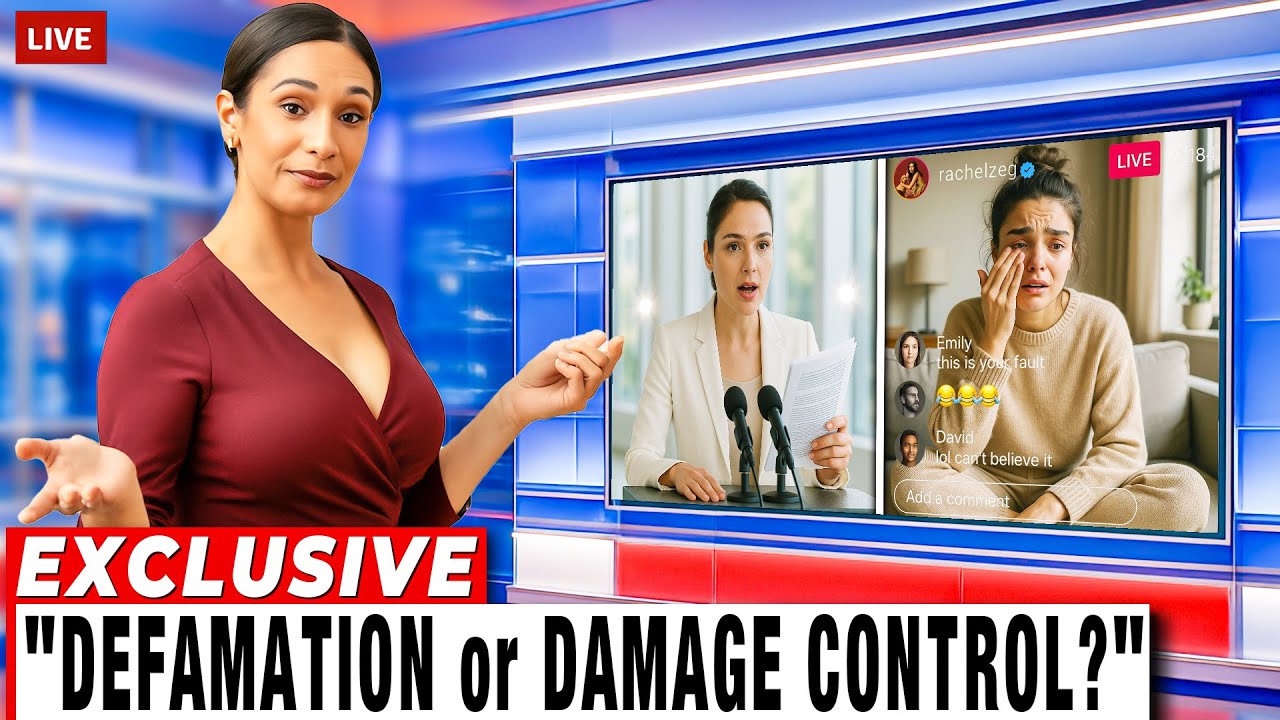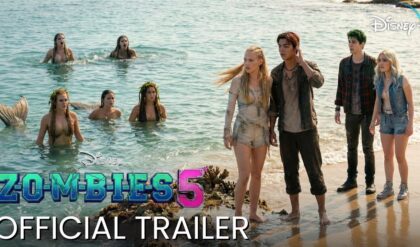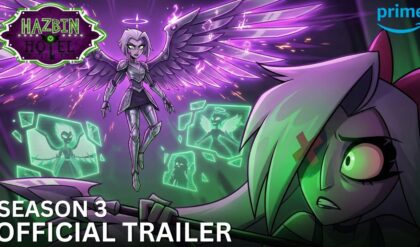The fallout from Disney’s live-action Snow White has taken a dramatic turn, with Gal Gadot, the film’s Evil Queen, reportedly hiring legal counsel in response to allegations made by her co-star Rachel Zegler. The $270 million remake, which flopped at the box office with a $115 million loss, was already mired in controversy over Zegler’s political comments and a rumored feud between the two actresses. Now, whispers of legal action suggest that Zegler’s remarks—particularly a March 2, 2025, comment calling Gadot a “typical beauty queen”—may have crossed a line, escalating tensions into a potential courtroom showdown. As Hollywood watches this saga unfold, here’s a deep dive into the allegations, the legal stakes, and why this clash is dominating headlines.

The Snow White Storm: A Recap
Disney’s Snow White, released on March 21, 2025, was meant to be a triumphant reimagining of the 1937 animated classic, with Rachel Zegler as the titular princess and Gal Gadot as the Evil Queen. Directed by Marc Webb, the film aimed to modernize the fairy tale with a focus on Snow White’s agency and a diverse cast. However, it faced relentless controversies, from criticism over CGI dwarfs to Zegler’s comments dismissing the original film as “dated” and its prince as a “stalker.” The film grossed only $168.6 million worldwide against a $410 million total cost (including marketing), earning a 40% Rotten Tomatoes score and a 1.6 IMDb rating, partly due to review-bombing campaigns.
Zegler’s political activism added fuel to the fire. Her August 2024 X post, “and always remember, free Palestine,” posted after a Snow White trailer, drew backlash and reportedly led to death threats against Gadot, an Israeli actress and former IDF instructor, prompting Disney to hire additional security. Zegler’s post-election Instagram outburst, including “F*** Donald Trump” and wishing Trump supporters “never know peace,” further alienated audiences, leading Disney to assign a social media consultant to vet her posts. Gadot, meanwhile, faced criticism for her vocal support of Israel, including organizing screenings of a documentary about the October 7, 2023, attacks, which contributed to a boycott of the film in Lebanon.
Rumors of a feud between Zegler and Gadot intensified due to their limited joint press appearances and Zegler’s omission of Gadot in Instagram posts thanking the Snow White cast. The film’s failure was pinned on multiple factors—bad CGI, a weak script, and Zegler’s polarizing comments—but the personal tensions between the two stars have now taken center stage.
The Allegations: Zegler’s “Beauty Queen” Jab
The spark for Gadot’s legal action reportedly came on March 2, 2025, during a promotional event tied to the Academy Awards, where Zegler and Gadot presented together. In a subsequent interview, Zegler referred to Gadot as a “typical beauty queen,” a comment that some interpreted as a dig at Gadot’s 2004 Miss Universe Israel title and her broader career achievements. Ayelet Raymond, an Israeli director and Miss Universe Israel Netanya 2024 winner, called the remark “deeply offensive,” arguing it trivialized Gadot’s accomplishments as an actress, producer, and cultural figure. Raymond wrote, “By labeling her as ‘typical,’ Zegler disrespects Gadot’s talent and the global legacy of the Miss Universe organization.”
The comment, though seemingly minor, was amplified by the existing tensions. Zegler’s history of provocative statements, including her pro-Palestine posts and perceived slights against Gadot (like excluding her from Instagram tributes), framed the remark as part of a pattern. On X, users speculated that Zegler’s words were a veiled jab, with one post stating, “Rachel Zegler’s ‘beauty queen’ comment was shade, and Gal’s not letting it slide.” Others defended Zegler, arguing the comment was misconstrued, with a user posting, “Zegler’s being targeted for everything she says. ‘Beauty queen’ isn’t an insult.”
Gadot, who received the Anti-Defamation League’s International Leadership Award on March 4, 2025, and a Hollywood Walk of Fame star on March 18, is reportedly viewing the comment as defamatory, particularly given its timing during a high-profile awards season. Sources suggest Gadot believes Zegler’s remarks, combined with her social media activity, have damaged her reputation and contributed to the narrative of a feud that harmed Snow White’s performance. While no lawsuit has been publicly filed as of May 5, 2025, reports indicate Gadot has consulted lawyers to explore options, potentially including a defamation claim or a suit for intentional infliction of emotional distress.
The Legal Stakes: Can Gadot Win?
Defamation cases in the U.S., where Gadot would likely file, require proving that a false statement was made with malice, caused harm, and was not protected opinion. Zegler’s “typical beauty queen” comment is subjective, making it a challenging basis for defamation. However, Gadot’s legal team could argue that the remark, in context with Zegler’s other actions—like her pro-Palestine post that allegedly incited threats against Gadot—created a pattern of harmful behavior. The death threats Gadot received, which prompted Disney to bolster her security, could be cited as evidence of tangible harm, though linking them directly to Zegler’s comment would be difficult.
Alternatively, Gadot might pursue a claim for intentional infliction of emotional distress, arguing that Zegler’s pattern of behavior was extreme and outrageous, causing severe emotional harm. This claim faces a high bar, as courts typically require egregious conduct. Gadot’s team could point to the cumulative impact of Zegler’s public statements, the lack of joint press, and the “beauty queen” remark as evidence of targeted antagonism, but success is uncertain without concrete evidence of intent.
The international context complicates matters. Gadot’s Israeli background and Zegler’s pro-Palestine stance have politicized their conflict, potentially influencing public perception and legal strategy. A lawsuit could amplify Gadot’s narrative as a victim of unfair targeting, but it risks backlash from Zegler’s supporters, who view her as a young Latina actress unfairly scapegoated in a “culture war.”
The Broader Context: Hollywood’s Culture Wars
The Gadot-Zegler clash reflects broader tensions in Hollywood, where political differences and social media amplify personal and professional disputes. Snow White’s failure was not solely due to the actresses’ feud—critics noted its “lazy” script and “visually repellent” CGI, and Disney’s remake strategy has faltered with films like Dumbo and The Little Mermaid. Yet, Zegler and Gadot became lightning rods, with their opposing views on the Israel-Palestine conflict drawing boycotts and protests. Pro-Palestinian activists targeted Gadot at her Hollywood Walk of Fame ceremony, while Israeli officials, like consul Ofir Akunis, slammed Zegler’s posts as “ridiculous” and urged support for Gadot’s film.
Zegler’s experience highlights the scrutiny faced by young, diverse actresses. Film critic Kelechi Ehenulo noted that actors from underrepresented backgrounds, like Zegler, often become “targets for backlash,” citing racist attacks on her Latina casting as Snow White. Supporters, including Melissa Barrera, who was fired from Scream 7 for pro-Palestine posts, have praised Zegler’s integrity, with Barrera calling her “cool as hell” for standing her ground. On X, fans rallied behind Zegler, with one user writing, “Disney’s throwing Rachel under the bus to save face for their flop.”
Gadot, meanwhile, faces her own challenges. Her IDF service and public support for Israel have made her a divisive figure, leading to Snow White’s ban in Lebanon and boycotts elsewhere. Her performance as the Evil Queen was criticized, with ScreenRant noting it felt “underdeveloped,” though some praised her new villain song, “All is Fair.” Gadot’s legal move could be seen as a bid to reclaim her narrative, but it risks painting her as overly sensitive in a polarized climate.
The Fallout: Careers and Disney’s Dilemma
For Zegler, the controversy has been a setback but not a career-ender. She’s pivoting to new projects, including starring as Eva Perón in a West End Evita revival from June to September 2025 and a comedy-drama, She Gets It From Me, opposite Marisa Tomei. Her Broadway debut in Romeo + Juliet earned raves, and fans on X are excited for her next steps, with one posting, “Rachel’s too talented to be canceled.” Disney’s reported frustration with Zegler, including minimizing her press after Snow White, suggests a strained relationship, but her youth and talent make her a likely candidate for redemption.
Gadot, already an established star, is also moving on, filming a new thriller as of April 2025. Her legal action could bolster her image among supporters but risks alienating fans who see it as punching down at a younger, less powerful actress. Disney, caught in the middle, faces pressure to navigate the PR fallout. The studio’s pause on a Tangled remake reflects caution after Snow White’s failure, and insiders are rethinking casting decisions to avoid similar controversies.
Why This Clash Resonates
The Gadot-Zegler saga is more than a Hollywood spat; it’s a window into the challenges of navigating fame in a divided world. Zegler’s outspokenness and Gadot’s resolve highlight the personal toll of public life, where a single comment can spark legal threats or global debates. The Snow White flop, while a creative misstep, became a cultural battleground, with both actresses caught in a web of politics, identity, and fan expectations.
As Gadot’s legal team prepares its next move, and Zegler focuses on her comeback, the industry is watching closely. Will this dispute reshape how studios handle politically vocal stars? Can two actresses with opposing views coexist in a franchise’s legacy? For now, the drama is far from over, and its resolution—whether in court or the court of public opinion—will leave a lasting mark on Hollywood.





